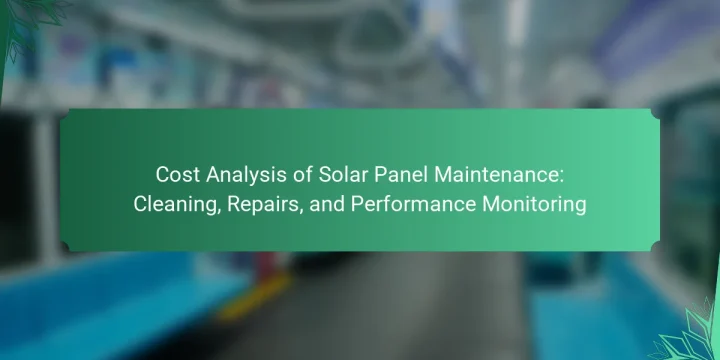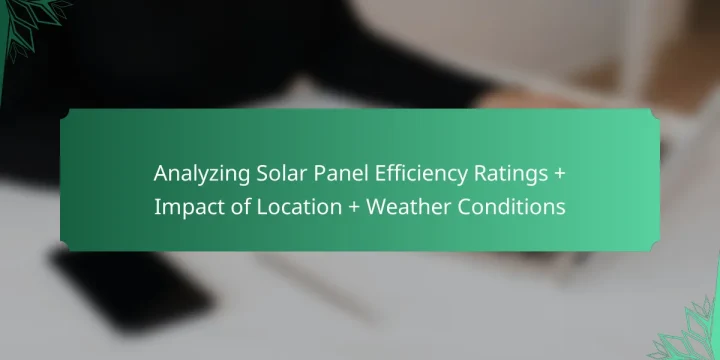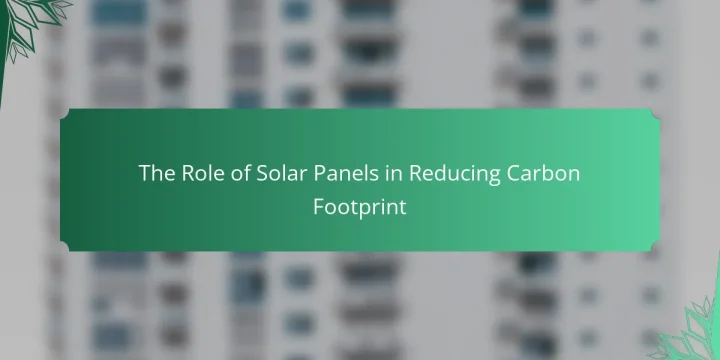
What is the Cost Analysis of Solar Panel Maintenance? The cost analysis of solar panel maintenance typically ranges from $150 to $300 annually. This figure includes cleaning, repairs, and performance monitoring services. Cleaning costs usually fall between $100 and $300 depending on the system size and location. Repairs can vary widely, averaging around $200, depending on the nature of the issue. Performance monitoring systems may add an additional $100 to $200 per year. Regular maintenance can enhance efficiency by up to 25%, justifying the investment. Overall, proper maintenance contributes to the longevity and effectiveness of solar panels. How does solar panel maintenance impact overall system performance? Solar panel maintenance significantly enhances overall system performance. Regular cleaning removes dirt and debris that can block sunlight, increasing energy production. Studies show that…








